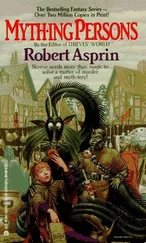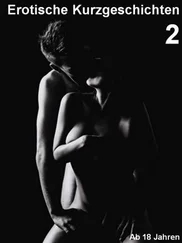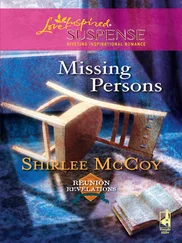“Children!” she called. “Children!” They wanted her to use English in public. Even on a Saturday, when so many of their friends would not be at the pool. Larry and Helen were far off, silver water pushing off their pale backs.
“Children, please!” Even this word seemed false to her, empty. She had not adapted easily to English. The rules seemed always to be changing. To make a plural, one added an s. But to make a plural for a verb, one dropped the s. Larry had explained it many times. Feed for plural, feeds for singular. And then there were the exceptions: mice for two mouses, sheep for the plural as well as the singular. Well, these words did not matter too much for everyday life. Fela could not imagine why her son bothered to make her memorize them. She supposed it was good to keep hearing the words, in case one day she had to make use of them. But in Queens, sheep? she had joked with Larry. He had looked hurt. He liked his little role as guide in the new world of Jackson Heights. Even Pavel laughed from time to time about it.
“Children!” She was standing above them, on the edge of the pool, letting them know she was going for her toaster, that they were not to dive while she was gone. They stopped and looked up. Children. It had taken her a long time to stop herself from saying “childrens.” And even now, when she was nervous, it slipped out wrong. Childrens. The truth was that “children” did not feel right to her without an s, as if the word properly spoken in English did not account for everyone.
SHE PULLED THE CAR out of the parking lot and drove down Queens Boulevard to shop. She did it every Saturday, and she did it with the same fear that by turning her eyes away from them in the pool, they would do something dangerous, hurt themselves. It was silly, to believe there was some kind of luck or magic or power in her eyes, but she really believed that if she watched over them, nothing could happen.
She believed it even though she could not swim. If she saw something happen there was nothing she could do to stop it-nothing to do but scream! Was that not worse? No, a scream could help. Still, she had to let them feel alone, feel independence. Everyone did it. Pavel could do it. Pavel could let go, at least a little.
Pavel had taught both children how to ride a bicycle. Larry was more fearless. He went fast. Helen never learned how to go fast. Fela would watch her husband from the window, his hands on the back of Helen’s bike rack, dragging his lame leg in a half-gallop after her as she pushed slowly on her training wheels. “I have you,” he would call out. “I have you.”
But Helen always sensed the moment when her father let go of the rack, and she would stop pedaling and turn around. Larry would speed off, even faster than Pavel had planned, and go veering down the sidewalk. Pavel would have to stop following after a few steps.
It isn’t like teaching you to ride, he had said one evening.
Hmm? Fela had answered.
I taught you-don’t you remember? How I would run after you, faster than you could pedal the wheels?
Pavel made sure they had what the other children in the neighborhood had, short blue frames for Larry, long wide seats for Helen. He let them ride around the block, on the sidewalk, until Helen ran into the legs of an elderly woman while concentrating on something that had rolled off the curb. After that he took the car and drove them, their bicycles protruding from the trunk, to the park in Fresh Meadows, and occasionally to Central Park, where they cycled in the closed road while he sat on a bench, listening to his pocket radio.
Fela used the time to be alone in the house. Sunday time. She was glad she did not have to observe the small mishaps, falls, flat tires, and stories of pain the children came home recounting. Larry was supposed to ride behind Helen, so that he could keep an eye on her. He would let her get far ahead of him so he could then catch up, pedaling at a sudden, high rate. Once he waited too long. She took a fork in the road, and Larry couldn’t find her. He had come back to his father, and they had called the police, who had already picked up a tearful girl and had placed her in between them in the police car, her low pink bicycle protruding from the trunk. They had planned not to tell Fela at all, but even if Helen had not walked through the door and grabbed her mother at the waist, Fela would have guessed something had happened, a near miss, an almost accident. A mother knew! And the children were unable to eat their dinner, because Pavel had bought them ice-cream cones on the way home, something he usually refused to do.
She did not like to leave them alone at the pool. But how could she bring them with her? She could not have them trailing behind if she wandered from Stanley’s shop to the grocery or stopped by the beauty parlor to chat with the Hungarian women who took the morning shift on Saturdays. It was summer. They were children. A lifeguard stood watch at the pool.
Besides, Larry was responsible. If Fela asked him not to do something dangerous, he agreed, he complied. He understood something about it, Fela thought, he saw that her worries mattered, they were important, more important perhaps than other rules: go to sleep early, don’t fight with your sister, take your clothes off the floor, don’t shout so in the house. He was not obedient, but he was sensitive. Certain things he understood.
So when she had told him, “Larry, watch your sister, not to let her to dive into the pool when I’m not here,” he had answered, “All right.”
And it was all right, it was all right. He was a good boy. The Italians in the hardware store still asked about him. When he was smaller and they were greener he would speak for both her and Pavel. He was their guide, the third parent, the American parent, translating for them when he himself registered for school. Thank God that cheat of a landlord spoke Yiddish. Larry had never had to be an intermediary there.
Or in most things anymore. Now that Pavel and Fela got on by themselves Larry watched over his sister. He watched over Helen; he obeyed his mother. It was all right.
FELA PAUSED BY THE window of a real estate office on Seventy-fourth Street, squinted at the little pink and green papers with black handwriting advertising apartments in Jackson Heights, houses in Corona. She and Pavel were always among the last ones. They had come after the others, stuck in Germany without visas while the others had started their new lives, learning the language of work, taxes, and now real estate after everyone else. She checked the storefront office every week, and every week someone looked up at her through the window. But she did not go in.
Pavel thought they should move. Pavel’s cousin was still in an apartment in Brooklyn, but Pavel’s sister and brother-in-law had a house in Long Island already. It was true, it would be good to have something larger. But it was difficult to find a home that would be suitable for Pavel’s limp. A house with stairs was out of the question, even if they could afford it.
She looked at a drawing of a house two blocks from Queens Boulevard, not too far from the courthouses. Reasonable, but still too much. Kew Gardens, she thought, squinting again at the advertisements in the window. Pavel liked the name Rego Park. It sounds like Riga, he said. It’s Jewish. And the Budniks live there.
She stepped away from the window. Perhaps she would stop an extra minute, buy a little sweet thing, some fruit, for the house.
That would be good for them. They shouldn’t learn to love so much her baking; it was bad for later. Larry was growing now, of course, and he could eat more steadily even than his father, but they taught him how to eat slow. It was a challenge, with a ten-year-old boy, to teach him to slow down! Fruit was good for eating slow. Pavel was careful about his eating, no matter how trim he was. And she too. They taught their children well. Finish what you eat, but eat slow. It was better for the digestion. Also one didn’t gain so much. Not that she prepared so many heavy foods. Cookies and cakes were the only exceptions.
Читать дальше











